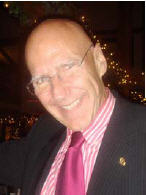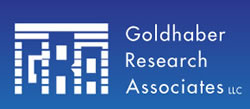Tara Godoy, the President of University Park Legal Nurse Consulting in the Northern San Francisco Bay Area recently brought to our attention via a posting on the Expert Witness Network that the FDA earlier this month has issued a consumer advisory warning the public that popular topical pain relieving products such as IcyHot and Bengay have been linked to a risk of a rare chemical burn injury. These products are sold in creams, gels and patches and are designed to provide temporary relief for pain to muscles and joints. As you might suspect, millions of us (this author included) have used these products without any knowledge of this risk. The FDA said, in its September 13, 2012 alert that there is a risk of first to even third-degree burns requiring hospitalization from applying these products. To date, the FDA has reported 43 such cases involving those brands as well as Capzasin, Flexall and Mentholatum. According to the FDA, "when applied to the skin, the products produce a local sensation of warmth or coolness..these products should not cause pain or skin damage." Most of the burns, according to FDA chemist Reynold Tan, "are associated with products containing the active ingredients menthol, methyl salicylate and capsaicin." According to the FDA, most of the severe burns came from products containing menthol or a menthol/methyl salicylate combination that had more than 3% menthol or 10% methyl salicylate. Only a few cases involved capsaicin.
Although the number of cases is very small compared to the millions of us who use these products, the FDA has issued the following advice for consumers:
- Don't apply these products to irritated or damaged skin
- Don't apply bandages on top of these products
- Don't apply heat from a heating pad, hot water bottle or lamp to the area where you have applied these products for fear of increasing the risk of serious burns
- Seek medical attention immediately if you experience burning pain or blistering
- Doctors should instruct patients on how to use these products
- Report any adverse side effects immediately to the FDA's MedWatch Program
We thank Tara Godoy for bringing this important issue to our attention.
Feel free to pass this issue of the Goldhaber Warnings Report on to any friend or colleague.
Dr. Gerald M. Goldhaber, the President of Goldhaber Research Associates, LLC, is a nationally recognized expert in the fields of Political Polling and Warning Label Research. His clients include Fortune 500 companies, as well as educational and governmental organizations. He has conducted hundreds of surveys, including political polls for candidates running for U.S Congress, Senate, and President. Dr. Goldhaber also served as a consultant to President Reagan's Private Sector Survey for Cost Control.
©Copyright - All Rights Reserved
DO NOT REPRODUCE WITHOUT WRITTEN PERMISSION BY AUTHOR.










